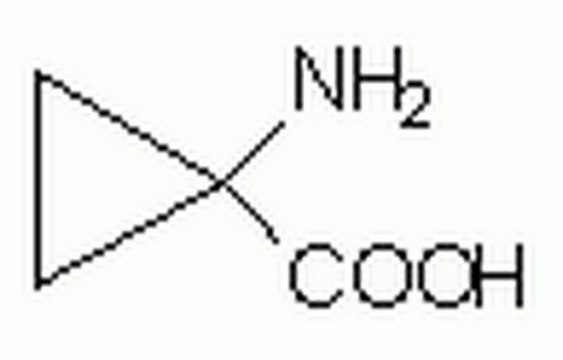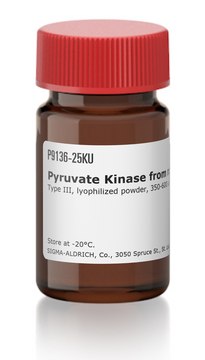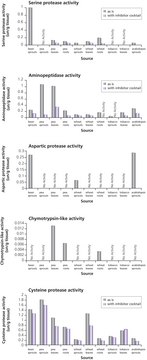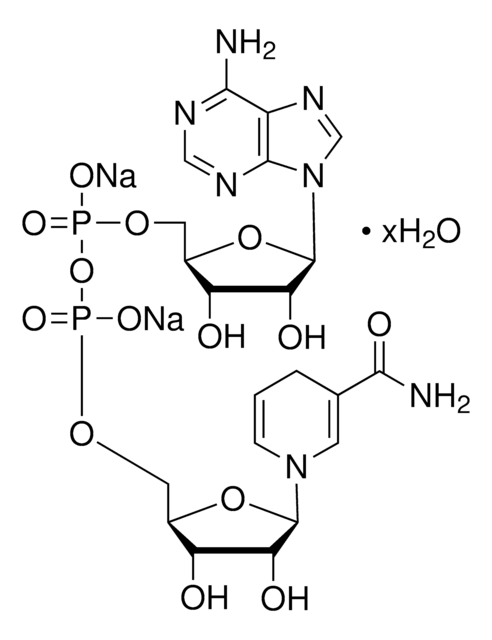C1744
Phosphoenolpyruvate carboxylase microbial
≥5.0 unit/mg solid
Synonym(s):
PEPC
Sign Into View Organizational & Contract Pricing
All Photos(1)
About This Item
Recommended Products
form
lyophilized powder
Quality Level
specific activity
≥5.0 unit/mg solid
mol wt
~390 kDa
storage temp.
−20°C
Application
Phosphoenolpyruvate carboxylase (PEPC) is an enzyme useful for enzymatic determination of carbon dioxide when coupled with malate dehydrogenase in clinical analysis. PEPC is also used to study carbon assimilation, post-translational regulation and allosteric regulation in various plants .
Biochem/physiol Actions
Phosphoenolpyruvate carboxylase (PEPC) catalyzes the addition of bicarbonate to phosphoenolpyruvate (PEP) to form the four-carbon compound oxaloacetate and inorganic phosphate . In CAM and C4 plants, PEPC catalyzes the photosynthetic assimilation of CO2 into an organic acid. PEPC is activated by glucose-6-phosphate and is inhibited by malate and aspartate. PEPC comprises about 0.5-2% of the soluble protein in alfalfa and soybean nodules .
Unit Definition
One unit causes the oxidation of one micromole of NADH per minute at pH 8.0 at 30°C.
Physical form
White amorphous lyophilized powder containing BSA and sugar alchohols as stabilizers.
Signal Word
Danger
Hazard Statements
Precautionary Statements
Hazard Classifications
Resp. Sens. 1
Storage Class Code
11 - Combustible Solids
WGK
WGK 1
Flash Point(F)
Not applicable
Flash Point(C)
Not applicable
Choose from one of the most recent versions:
Already Own This Product?
Find documentation for the products that you have recently purchased in the Document Library.
Customers Also Viewed
Our team of scientists has experience in all areas of research including Life Science, Material Science, Chemical Synthesis, Chromatography, Analytical and many others.
Contact Technical Service





![Water, PCR Grade liquid, pkg of 25 mL (03315959001 [1 x 25 ml]), pkg of 25 mL (03315932001 [25 x 1 ml]), pkg of 100 mL (03315843001 [4 x 25 ml])](/deepweb/assets/sigmaaldrich/product/images/326/208/bac83eed-3c88-4738-b4b5-50d3b223dd1c/640/bac83eed-3c88-4738-b4b5-50d3b223dd1c.jpg)








